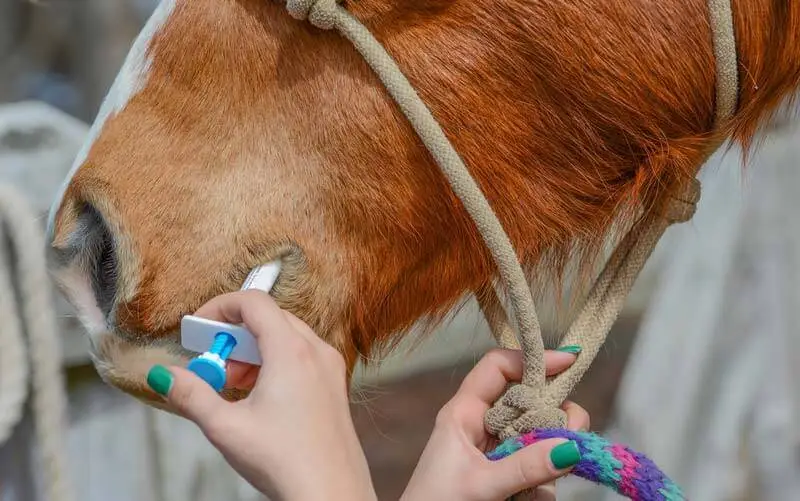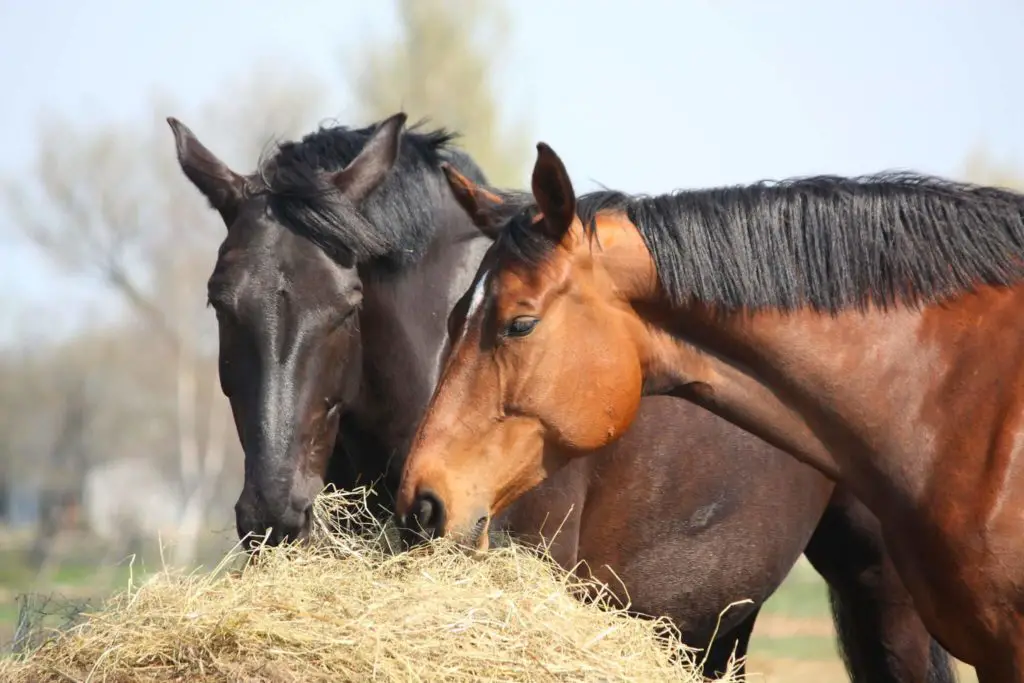My horse’s eye is swollen. What should I do?
My horse’s eye is swollen, and I’m not sure what to do. As a horse owner, it’s essential to know how to handle these situations to ensure your horse’s health and well-being. Eye swelling in horses can be caused by several factors, including allergies, injury, infection, or a foreign object stuck in the eye.
If you notice your horse’s eye is swollen, it’s crucial to act quickly. First, assess the severity of the swelling. If the swelling is mild and your horse isn’t in any pain and the eye isn’t weeping, you can monitor it for a day to see if it goes down on its own. However, if the swelling is severe or your horse is in pain, and the eye is weeping, you should contact your veterinarian immediately. They can help determine the cause of the swelling and provide the appropriate treatment.
Ignoring eye swelling in horses can lead to more severe problems, such as corneal ulcers or even blindness. By taking quick action and seeking veterinary care, you can help ensure your horse’s eye heals properly and prevent any long-term damage.
Assessing the Swelling
If you notice that your horse’s eye is swollen, it’s important to assess the situation before taking any action. Here are some steps to follow:
Observing the Swelling
First, take a close look at the swelling. Is it affecting the eyelid or the eye itself? Is the swelling red or inflamed? Does your horse seem to be in pain or discomfort? Is the eye cloudy looking?
It’s also important to observe your horse’s behavior. Is your horse rubbing their eye or avoiding light? These observations can help you determine the severity of the swelling and whether or not it requires immediate attention. If you are unable to open the eye or see the cornea seek veterinary attention immediately.
Common Causes of Eye Swelling in Horses
Insect Bites and Stings
One of the most common causes of eye swelling in horses is insect bites and stings. Flies, mosquitoes, and other insects can bite or sting a horse’s eye, causing it to become inflamed and swollen. In some cases, the swelling can be severe and even affect the horse’s vision.
If you suspect that your horse’s eye swelling is due to an insect bite or sting, you should take steps to prevent further bites or stings. This may include using fly repellent, keeping your horse in a fly mask.
Allergies
Horses, like humans, can develop allergies to a variety of substances. Allergies can cause a range of symptoms, including eye swelling. Some common allergens that can affect horses include pollen, dust, and mold.
If you suspect that your horse’s eye swelling is due to an allergy, you should try to identify the allergen and remove it from your horse’s environment. This may involve changing your horse’s feed, bedding, or pasture, or using allergy medication.
Infections
Infections can also cause eye swelling in horses. Bacterial and viral infections can both affect the eyes, as can fungal infections.
If you suspect that your horse’s eye swelling is due to an infection, you should consult with a veterinarian. They may prescribe antibiotics or antifungal medications to treat the infection.
Injuries
Eye injuries can also cause swelling in horses. This may include scratches, cuts, or blunt trauma to the eye.
If you suspect that your horse’s eye swelling is due to an injury, you should consult with a veterinarian immediately. They may prescribe medication or recommend other treatments to help reduce the swelling and promote healing.
Immediate First Aid
Consulting a Veterinarian
If your horse’s eye is swollen, it’s important to consult a veterinarian immediately. An eye injury can be serious and require prompt treatment to prevent further damage. A veterinarian can examine the horse’s eye and determine the cause of the swelling. They may prescribe medication or recommend further treatment depending on the severity of the injury.
Administering Medication
If your veterinarian prescribes medication, it’s important to follow their instructions carefully. Administering medication incorrectly can cause further damage to the horse’s eye. Some medication may need to be given directly to the eye, while others may need to be given orally. Be sure to wear gloves and follow proper hygiene protocols when administering medication to prevent the spread of infection. It’s important to note that while immediate first aid can help alleviate some symptoms, it is not a substitute for professional veterinary care. Always consult a veterinarian if your horse’s eye is swollen or if you suspect they have an eye injury.
Prevention
Keeping the Environment Clean
I always make sure to keep my horse’s environment clean to prevent any potential infections. This includes regularly cleaning their stable, removing any manure, and keeping ther water and food buckets clean. Additionally, I make sure to regularly clean any equipment that comes into contact with my horse, such as brushes and saddle pads.
Protecting the Horse from Insects
Insects can be a major source of irritation for horses, and can lead to eye swelling and infections. To prevent this, I make sure to use fly repellent sprays and fly masks to protect my horse from insects. I also try to avoid turning them out during times when insects are most active, such as dusk and dawn.
Overall, by keeping my horse’s environment clean and protecting them from insects, I am able to prevent many potential causes of eye swelling and infections.
Conclusion
Dealing with a swollen eye in horses can be a cause for concern, but it is important to remain calm and take quick action. In most cases, the swelling will subside on its own, but it is best to consult with a veterinarian.
As a horse owner, it is important to be aware of the potential causes of eye swelling and to take preventative measures when possible. Keeping the horse’s living environment clean and free of irritants, monitoring for signs of infection or injury, and seeking prompt treatment when necessary are all key components of maintaining your horse’s eye health.
Remember, your horse’s eyes are a crucial part of their overall health and wellbeing. By staying vigilant and proactive, you can help ensure that your horse remains healthy and happy for years to come.




